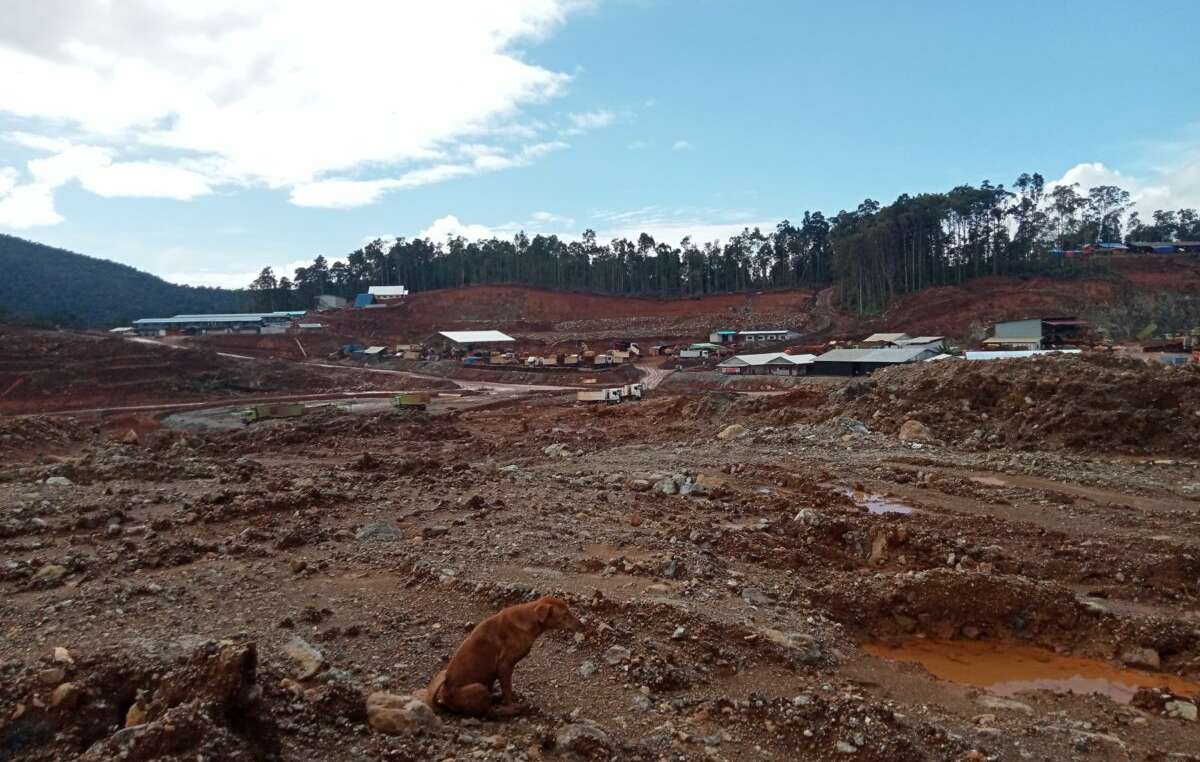An uncontacted tribe in Indonesia is under threat of being wiped out due to a colossal mining project that’s looking to harvest metals in their ancestral land for electric car batteries, according to tribal rights group, Survival. Mining companies and governments are being blamed, but the finger is also being pointed at electric car makers like Elon Musk’s Tesla.
In a fresh call for help, Survival is spreading awareness that multinational mining giants have set their sights on the Indonesian island of Halmahera.
The forested interior of the island is home to some 300 to 500 members of an uncontacted tribe known as the Hongana Manyawa, which means “People of the Forest” in their own language. They are one of the last nomadic hunter-gatherer tribes in Indonesia. Although some individuals have talked to members of the outside world, many factions of the Hongana Manyawahave remained uncontacted.
This part of Indonesia is also the site of some of the world’s largest unexploited nickel reserves. With demand for electric cars only set to rise in coming years, it’s expected that mining operations in Halmahera will ramp up, landing the Hongana Manyawa tribe with an existential threat.
“If there is no more forest, then there will be no more Hongana Manyawa,” a man from the tribe said, Survival reports.
“I do not give consent for them to take it… tell them that we do not want to give away our forest,” a Hongana Manyawa woman recently said.
Evidence of destruction from nickel mining in Halmahera. Image courtesy of © Christ Belseran/Survival
Weda Bay Nickel, a company partly owned by French mining giant Eramet, reportedly started mining the island in 2019, but mining efforts are expected to scale up in the near future. Survival reports that German chemical giant BASF is planning to partner with Eramet to build a refinery in Halmahera, potentially infringing on the Hongana Manyawa territory.
While the desperate need to cut down on fossil fuels has driven demand for electric cars over the past decade, these flashy consumer products come with their own environmental snags.
One of the prime problems is associated with the metals used to make their batteries, such as nickel, cobalt, and – most notably – lithium. Since these minerals are deposited in large quantities beneath Earth’s surface, disruptive mining is required to obtain them, resulting in ecosystem destruction and Indigenous land grabs.
Along with international mining companies, electric car manufacturers are complicit in the problem. Survival says that Tesla, the world’s largest electric vehicle company owned by Elon Musk, has signed billion-dollar contracts to buy Indonesian nickel and cobalt for their batteries.
Tesla has a policy that all material extraction in such conditions will involve “legitimate representatives of indigenous communities and include the right to free and informed consent.” However, Survival argues they have not stuck to this code, pointing to deals they have made with Chinese companies Huayou Cobalt and CNGR Advanced Material that have links to nickel mining in Halmahera.
It’s possible further mining operations on Halmahera could be deemed illegal under international law as the uncontacted tribes cannot give their full consent to the exploitation of their land.
“It’s appalling that electric car companies would sell customers a promise of ‘ethical consumption’, while their supply chains destroy an uncontacted tribe. There is nothing ‘climate-friendly’ about laying waste to the Hongana Manyawa’s rainforest, and nothing ‘sustainable’ about causing the deaths of Indigenous people who are living self-sufficiently,” Caroline Pearce, Survival’s Director, said in a statement.
“Tesla and other electric car companies have an opportunity to live up to their customers’ expectations and to avert a horrific – and illegal – assault on human rights by pledging that none of the minerals they buy ever comes from the lands of uncontacted Indigenous people in Halmahera. Failing to do so would be a statement that the lives of the uncontacted Hongana Manyawa are expendable.”
Source Link: Uncontacted Tribe May Be Wiped Out By Mining For Electric Car Batteries
